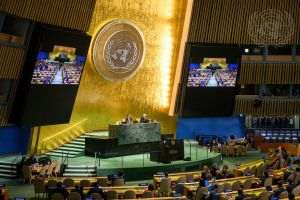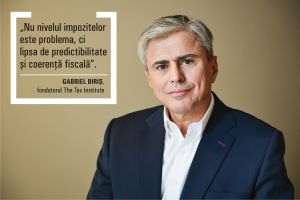• Swallowing its pride, the EU planned to ask for money from China, Brazil and any other country that was willing to give it, from private investors and from the IMF
• The global influence of emerging countries will increase
Nicolas Sarkozy and Angela Merkel got together (as well as other 25 EU heads of state), over an admirable piece of financial engineering, which would help the Eurozone prevent its own implosion, in the event of a Greek default, but which would not require any European institution to put any money on the line. Even though it was initially announced that it wasn"t ready, without it there wouldn"t have been much of a point for the so-called "crucial" summit of the European leaders in the first place (there were rumors there would be another "crucial" meeting in about four days, on the same subject).
The document describes two models for "increasing the firepower" of the European Financial Stability Facility (EFSF), which is already being criticized technically, because it doesn"t look like the text has reached its final form:
1) The first method would allow the EFSF to guarantee 20-30% of the potential losses of investors who bought Italian and Spanish bonds from the primary market (but not for those who did so from the secondary market);
2) In order to support the secondary market, the EFSF would set up an SPIV ("special purpose investment vehicle", which is in fact a bond fund, which would collect money from private investors, sovereign investment funds, and other institutions - including the IMF, of course), which would issue bonds (and it is unknown for now in what manner it will be guaranteed by the EFSF), in exchange for which it would - again! - , raise money to buy Italian and Spanish bonds, from the secondary market (very convoluted, but this convolutedness seems to stem from the attempt to adapt to the current lack of confidence in the markets).
Many voices say that the arrangement doesn"t require significant legislative changes and that these two models should not be mutually exclusive, but rather complementary, to avoid a "double standard" for the primary and secondary market.
Despite its inventiveness and sophistication, it is impossible to tell whether the project is workable, before holding talks with ratings agencies and potential investors.
As announced yesterday by the delegation of the EU in Beijing, the head of the European Financial Stability Facility, Klaus Regling, will visit China tomorrow, and according to China Daily, emerging countries, including China, have agreed to participate in a European bailout fund, through the International Monetary Fund (IMF).
The same Chinese daily writes: "The agreement (which is currently being drafted) may be included in the final document of the summit of the European leaders", if yesterday"s summit in Brussels will decide to make the fund available to public and private foreign investors.
By participating in a European emergency fund, "China and other emerging markets could become more influential in the global financial system, before the G20 summit", which will take place on November 3rd and 4th in Cannes, France, China Daily notes.
Yes, Europe will be set back a few steps, and emerging markets will become more influential.
Which ones, you ask?
Brazil, Russia, India, China and South Africa.
OK.
At least the EU won"t completely disappear ...
• German parliament approves the plan to increase the resources made available to the emergency fund
The German parliament voted in favor of the plans to increase the funding of the European Financial Stability Facility, emergency fund intended for countries in the Eurozone, which currently stands at 440 billion Euros. 503 MPs voted in favor of the plans to boost the resources available to the emergency fund, and 89 voted against them.
Chancellor Angela Merkel needed the agreement of the Parliament before negotiating in Brussels, at the summit of the European leaders, the boosting of the financial capabilities of the Fund.
German chancellor Angela Merkel, yesterday said, in her speech in the Parliament of Berlin that European leaders should agree on a plan that involves a 50% haircut on Greek debt for private bondholders.
The chancellor promised the members of the German parliament that she would support solutions which are sustainable in the long run in her interventions in the European parliament: "We will do what we can to once again get Greece back on its feet as soon as possible. Simply reducing its debt won"t help Greece, structural reforms still need to be implemented. The goal of tonight"s meeting (ed. note: yesterday night) must be to reach a solution which would ensure that by 2020, Greece would have a public debt of 120% of its GDP". The chancellor warned that Greece would need the support of the EU for a long time and that there are no discernable solutions that would work over night.
•
• Draghi: The ECB will continue to buy bonds of distressed European countries
The European Central Bank (ECB) will continue to buy bonds of troubled European states, in order to fight market turbulence, the future president of the institution, Mario Draghi said yesterday, a few hours before the summit of the EU leaders. "The central bank is firm in preventing, through its non-conventional measures, the faulty functioning of the monetary and financial markets", Draghi said in Rome.
Draghi who will replace Jean-Claude Trichet as president of the ECB on November 1st, said that these measures will be temporary, and it is the duty of the governments to eliminate the causes of the sovereign debt crisis, which was sparked by Greece two years ago. Its statement seems to reject the requests coming from the German Central Bank, Bundesbank, for the ECB to end the sovereign bond purchase program, which led to the resignations of two high ranking German officials from the ECB this year.
•
• Germany obtained the removal of the phrase concerning the ECB from the press release of the summit
Germany obtained the elimination from the draft of the final press release of the Eurozone summit of a sentence by which the ECB was being asked to continue buying Spanihs and Italian sovereign bonds, a political source said. "This phrase was eliminated from the text which will be presented to the heads of state and of the governments from the monetary union at the summit discussing the sovereign debt crisis", the source said.
In the initial version of the draft press release it was said that the leaders of the countries in the region fully support the actions of the ECB to ensure price stability in the Eurozone, including the non-conventional measures taken under the current extraordinary market circumstances.
The term "non-conventional measures" refers in particular to the policy of the ECB to buy bonds of the troubled European countries, in order to stem the rise in their yields.
The ECB used these measures to support Italy and Spain in August.
Several countries, including France, as well as the European Commission, claim that the ECB should continue the acquisitions of bonds, after Italian Mario Draghi will take over the presidency of the ECB from Jean-Claude Trichet, starting on November 1st.
German chancellor Angela Merkel viewed the phrase as an interference of the European leaders in the policies of the ECB and asked for the paragraph, to honor the independence of the institution.





















































